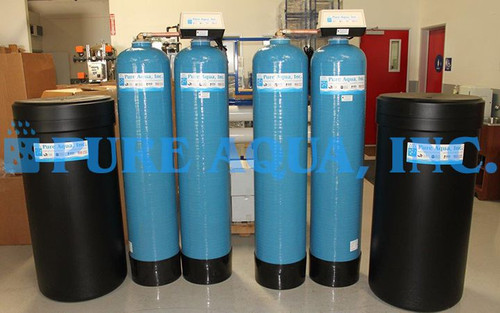An effective way to determine the content in your water is to use a water quality testing instrument that can test the water for you. The results will assist you in evaluating the best treatment solution to use between nanofiltration and water softening. This article will further help you understand the inner workings of each of these solutions and how exactly they differ in their functioning.
[custom-specifications]
Since the nanofiltration and water softening process are designed to treat different water-related issues, ascertaining which method is appropriate for your application depends on what’s in your water. For instance, water containing a high mineral content such as manganese and calcium is generally an indication that water is hard and a water softener is needed to remedy this problem. If there is a foul odor emanating from your water, a water filter is usually the most efficient option to eliminate unwanted contaminants from your water supply.
[/custom-specifications]
[custom-features]
Does a Water Softener Filter Water?
Water softening does not work to remove all contaminants within hard water. This is because hard water does not necessarily mean the water is dangerous to consume. In fact, water with moderate mineral content is perfectly safe and healthy for human consumption.
Water softeners are considered old technology and requires salt for each regeneration cycle. The amount of salt required for the water softener’s continuous usage is fixed on the mineral content within the water supply and the size of the brine tank. As the salt combines with the water, it creates a brine solution that is disposed of through the resin during the regeneration cycle. This can lead to external problems, such as increasing the county’s cost of recycling wastewater throughout municipal areas once brine is mixed with the wastewater. Another disadvantage of conventional water softening process is increasing the sodium level which makes it non favourable for drinking.
Brine wastewater leads to hazardous effects on the environment, due to the formation of sediments and corrosive impacts of sodium chloride and poison of other chemicals attenuated within. It is imperative for it to be sufficiently eliminated, which can necessitate the requirement of authorization and compliance with federal environmental agencies.
So the simple answer is yes, water softeners are very capable of removing hard ions from water. However, the water softening process is not effective in producing clean water through the removal of hard ions, chemicals, chlorine, heavy metals, etc.
HOW DOES NANOFILTRATION WORK?
Nanofiltration systems are increasingly replacing water softeners as the leading treatment solutions for the filtration of TDS and organic substances to soften water. Nanofiltration systems require much less labor and operating costs than water softeners. Nanofiltration displays its effectiveness in salt rejection by eliminating over 90% salt from water, which reduces scaling on materials and heat exchange surfaces.
Certain pollutants such as pesticides, lead or mercury are more efficiently removed through the usage of nanofiltration as compared to water softening. This is done for health-related issues and enhancing the appearance of the water. Many people in the water treatment industry name the nanofiltration as a softening membrane system.
[/custom-features]
[custom-usage]
Due to its greater elasticity, nanofiltration membranes require less maintenance and are less conducive to fouling than water softeners and reverse osmosis systems.
Nanofiltration systems also require much less labor and operating costs than water softeners. Nanofiltration displays its effectiveness in salt rejection by eliminating over 90% salt from water, which reduces scaling on materials and heat exchange surfaces.
[/custom-usage]
-
Thank you
I did not understand the differene between water softeners and nanofiltration.
- Related Project1:
- https://pureaqua.com/reverse-osmosis-and-nano-filtration-systems-for-surface-water-treatment-mexico/
- Related Project2:
- https://pureaqua.com/twin-alternating-softener-2x-367200-gpd-chile/
- Related Project3:
- https://pureaqua.com/ultrafiltration-and-nanofiltration-skids-20-50-gpm-usa/
- Related Project4:
- https://pureaqua.com/twin-alternating-water-softener-140000-gpd-guam/
 ENGLISH
ENGLISH
 ESPAÑOL
ESPAÑOL ???????
??????? PORTUGUÉS
PORTUGUÉS FRANÇAIS
FRANÇAIS













